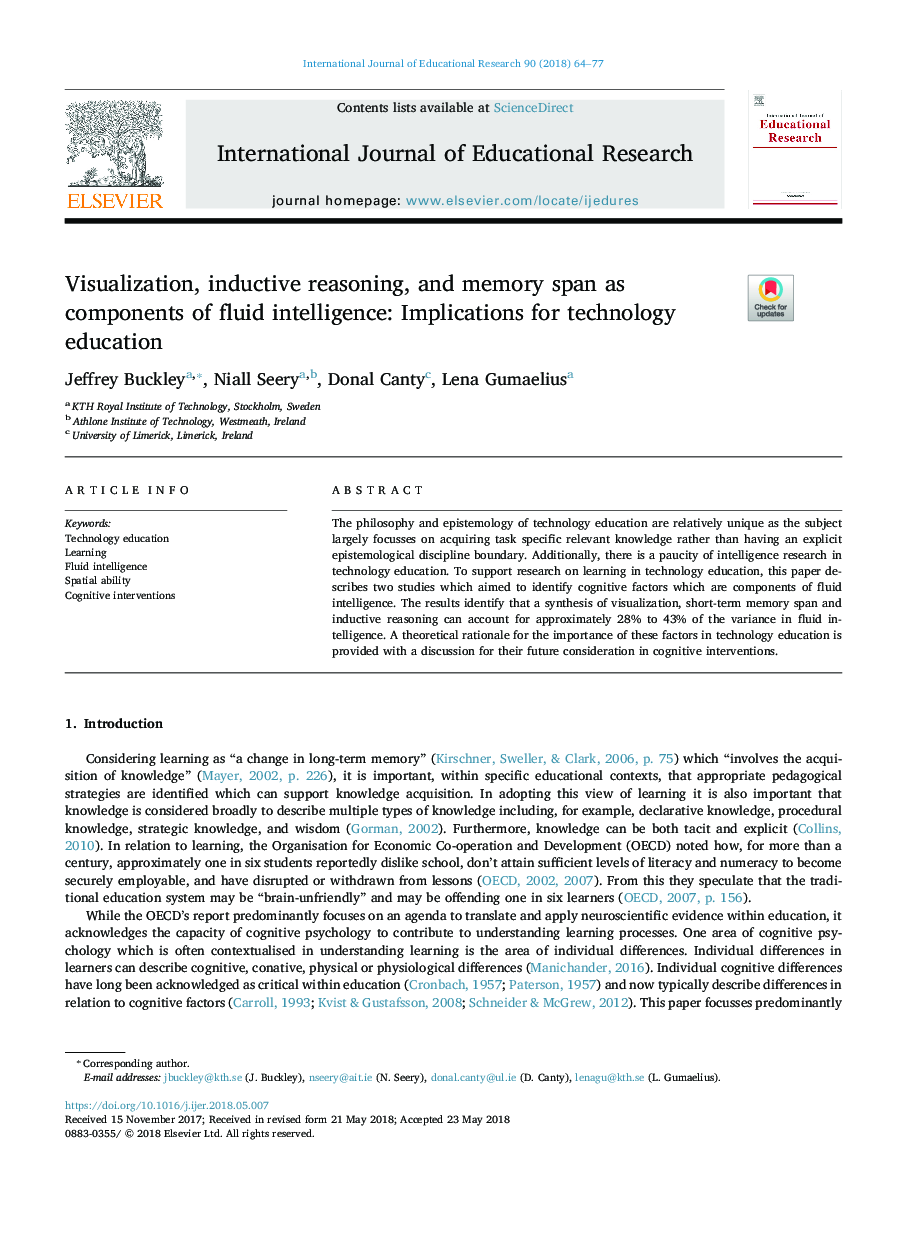| کد مقاله | کد نشریه | سال انتشار | مقاله انگلیسی | نسخه تمام متن |
|---|---|---|---|---|
| 6841472 | 1435400 | 2018 | 14 صفحه PDF | دانلود رایگان |
عنوان انگلیسی مقاله ISI
Visualization, inductive reasoning, and memory span as components of fluid intelligence: Implications for technology education
ترجمه فارسی عنوان
تجسم، استدلال استقامتی و حافظه به عنوان اجزای هوش سیال: پیامدهای آموزش فنی
دانلود مقاله + سفارش ترجمه
دانلود مقاله ISI انگلیسی
رایگان برای ایرانیان
کلمات کلیدی
آموزش تکنولوژی، یادگیری، هوش مایع توانایی فضایی، مداخلات شناختی،
ترجمه چکیده
فلسفه و معرفت شناسی آموزش تکنولوژی نسبتا منحصر به فرد است، زیرا موضوع به طور خاص بر کسب دانش خاص مربوط به کار تمرکز می کند و نه مرز انضباط صریح معرفت شناختی. علاوه بر این، کمبود تحقیقات اطلاعاتی در آموزش تکنولوژی وجود دارد. برای حمایت از پژوهش در یادگیری در آموزش و پرورش فن آوری، این مقاله دو مطالعه را انجام می دهد که هدف آن شناسایی عوامل شناختی است که مولفه های هوش سیال هستند. نتایج نشان می دهد که یک سنتز تجسم، فاصله کوتاه مدت حافظه و استدلال القایی می تواند تقریبا 28 تا 43 درصد از واریانس در هوش سیال را داشته باشد. منطق تئوری برای اهمیت این عوامل در آموزش تکنولوژیک با بحث در مورد آینده خود در مداخلات شناختی ارائه شده است.
موضوعات مرتبط
علوم انسانی و اجتماعی
علوم اجتماعی
آموزش
چکیده انگلیسی
The philosophy and epistemology of technology education are relatively unique as the subject largely focusses on acquiring task specific relevant knowledge rather than having an explicit epistemological discipline boundary. Additionally, there is a paucity of intelligence research in technology education. To support research on learning in technology education, this paper describes two studies which aimed to identify cognitive factors which are components of fluid intelligence. The results identify that a synthesis of visualization, short-term memory span and inductive reasoning can account for approximately 28% to 43% of the variance in fluid intelligence. A theoretical rationale for the importance of these factors in technology education is provided with a discussion for their future consideration in cognitive interventions.
ناشر
Database: Elsevier - ScienceDirect (ساینس دایرکت)
Journal: International Journal of Educational Research - Volume 90, 2018, Pages 64-77
Journal: International Journal of Educational Research - Volume 90, 2018, Pages 64-77
نویسندگان
Jeffrey Buckley, Niall Seery, Donal Canty, Lena Gumaelius,
